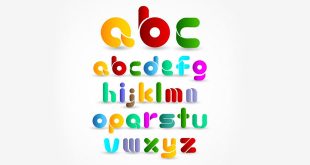Usage of Whom And Who
Who: It is a nominative pronoun that acts either as a regular verb or as a subject-linked verb.
Example:
- Who ate the cake? (Verb)
- Did you see who ate the cake? (Subject linked verb)
Whom: It acts is the object or a preposition.
Example:
- Whom did you call? (Object)
- He is the person to whom I placed the call (Preposition).
So, to be clear of what to be used, whether who or whom, it is essential that you are thorough with subjects and objects. The easiest method to figure out whether to use “who” and “whom” better is as follows.
- The difference between “who” and “whom” is similar to the difference between I and me, he and him, she and her, etc.
- Usage of “Who” is just like that of I, he, and she, indicating the subject. “Whom” on the other hand, is similar to “me”, “him”, and “her”. It indicates the object of the sentence.
If you still feel it hard to relate, then look at the following example.
Example
Let us consider the similarity between the usage of “whom” and “him”. Both end with “m”. Now, whenever you are confused with the usage of whom, just think what would be the answer to the question – “he” or “him”. If it is “him” then, without any doubt, you can use “whom”. For instance, if you are confused with “Who (or whom) do you love?” The answer would be “I love him.” So, the question would be “Whom do you love?”. Now, consider another question “Who (or whom) stepped on the floor paint?” The answer to the question would be “He stepped on the floor paint” and so the word you are looking for here is “Who”.
Whom
As mentioned earlier, “whom” refers to the object of a sentence. “Whom” can also be used in statements, as the object of a clause. It can be used after a preposition as well.
Example
- John is the man whom you met at dinner last week. (As an object of a clause)
- This is the boy whom Mrs. Russell hit in the palm, with a chalk eraser.
- The students, one of whom is graduating this year, failed the test. (Used after proposition)
- Lisa is the girl with whom I’m driving to Maine
“Whom” In Questions
- Whom did you call?
- Whom do you love?
- Whom did I give the book to?
- With whom are you going?
- Whom did they tell their problem?
- Whom can we turn to in a time of crisis?
- They fought over whom?
- After whom do I enter the stage?
Whom In Sentences
- This is the man whom I met yesterday.
- Mrs. Dimwit consulted an astrologer whom she met in Mumbai.
- Jones is the man whom I went fishing with last spring.
- I’ll begin my letter with the phrase: To Whom It May Concern.
- I don’t know from whom the love letter came.
Who
Let us now consider the usage of “who” with examples. As discussed earlier, “who” represents the subject of a sentence. For instance, consider a simple sentence, “I love you”. Here the subject is “I” and thus, the question will be “Who loves you”.
“Who” In Questions
- Who is that masked man?
- Who went to the circus?
- Who won the Game?
- Who is that?
- Who gave you this?
- Who is responsible for this?
- Who is going?
- Who are you?
“Who” In Sentences
- A tenant is a person who rents a house or a flat.
- A shoplifter is a person who steals from shops.
- Alexander Graham Bell is the man who invented the telephone.
- The boy who won the prize felt really happy about it.
- David, who owns a very fast car, is a careless driver.
- That girl who is carrying the red handbag is new at school.
- Lewis, who plays tennis professionally, is an excellent player.
Usage “Who” & “Whom” In Same Sentence
- A circus is like a mother in whom one can confide and who rewards and punishes.
- How unbearable at times are people who are happy, people for whom everything works out.
- We always love those who admire us, but we do not always love those whom we admire.
- Anger hurts the one who is possessed by it more than the one against whom it is directed.
- Marriage is the alliance of two people, one of whom never remembers birthdays and the other who never forgets them.
Every problem has a solution. The only thing is that you should get the key to resolve the problem. In this article, we have provided you with the key to solve your problem with the usage of “who” and “whom”. Once you have understood the way to differentiate both, it gets you out of the muddle. Hope this article helped you find out a solution for your doubts regarding these two interrogative pronouns.
 Class Notes NCERT Solutions for CBSE Students
Class Notes NCERT Solutions for CBSE Students


